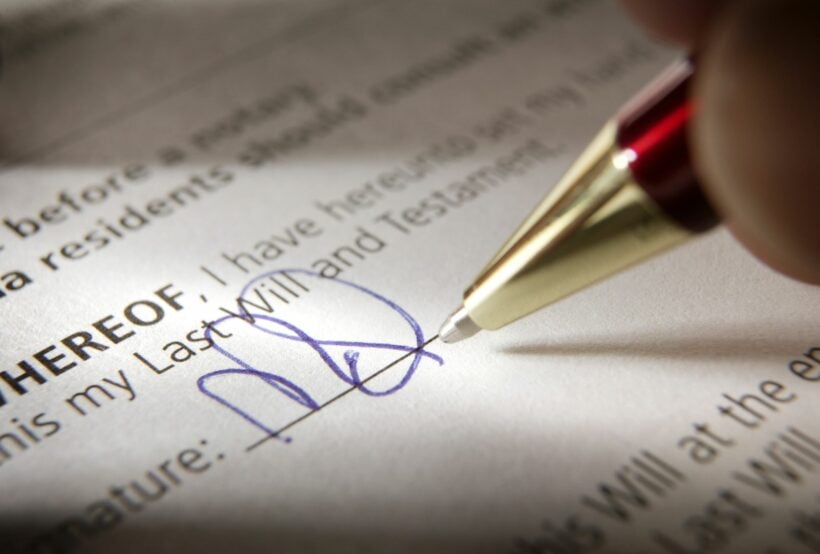Do we need a Last Will and Testament in Thailand?

With the growing number of people retiring in Thailand, our firm has received several inquiries for a Last Will and Testament. The primary question that we receive is, “Do I need a will?”
What does a Last Will and Testament do?
The purpose of a Last Will and Testament is to direct funeral arrangements, determine property distributions, assign a guardian to a minor, guide the payment of debt, and appoint a personal representative. Without a Will, the courts will appoint someone to do those tasks.
A Last Will and Testament ensures that your property is distributed to the person who you want to benefit, and not to anyone else.
Thailand like almost all jurisdictions has a default property distribution for your remaining property if you have not left a will. If you die without a will, your remaining property will devolve to your statutory heirs.
There are six classes of statutory heirs for the property of a person who dies without a will:
1. Descendants (children)
2. Parents
3. Brothers and sisters of full blood
4. Brothers and sisters of half blood
5. Grandparents
6. Uncles and Aunts
If the deceased has a spouse and there are no other heirs, the spouse is entitled to all of the property. If there is a spouse and heirs, the spouse is entitled to half of the deceased’s property. If there are no spouses and only heirs, the heirs will be entitled to all of the deceased property. If there are no heirs and no spouse, the state will take over the property.
Do I need to execute a Last Will and Testament in Thailand?
The question of whether a person needs a Last Will and Testament is personal to that individual. If the individual is not married, does not have family, and has no property, then a will may be of little value when they pass away. However, if an individual is married, has minor children from a previous relationship, and a large amount of property, it is prudent to prepare a Last Will and Testament.
The Last Will and Testament should be made according to Thai law if the individual has property or large financial accounts in Thailand. If the deceased’s personal or real estate is located in Thailand, the property will have to go through Thai probate for title to the property to be transferred.
For a Last Will and Testament to be valid in Thailand, the will must be dated and signed by the testator in the presence of at least two witnesses who certify that the testator signed the will. The witnesses cannot be the spouse or anyone who will receive a distribution. While the will is not required to be notarized or registered, it may be prudent to do so. The Last Will and Testament can be filed publicly or privately sealed with the local amphur.
Different jurisdictions also have different requirements in the drafting and signing of a will. If the property is in multiple jurisdictions, it is prudent to ensure that the will meets the minimum requirements of all the jurisdictions. The Last Will and Testament can be written in any language but will have to be translated into Thai when submitted in probate court in Thailand.
To ensure that the Last Will and Testament complies with the legal requirements in Thailand, the document should be reviewed by a Thai attorney who is experienced in handling such matters. It is too late to ensure compliance when the testator has passed away.
Robert R Virasin
Latest Thailand News
Follow The Thaiger on Google News:


























